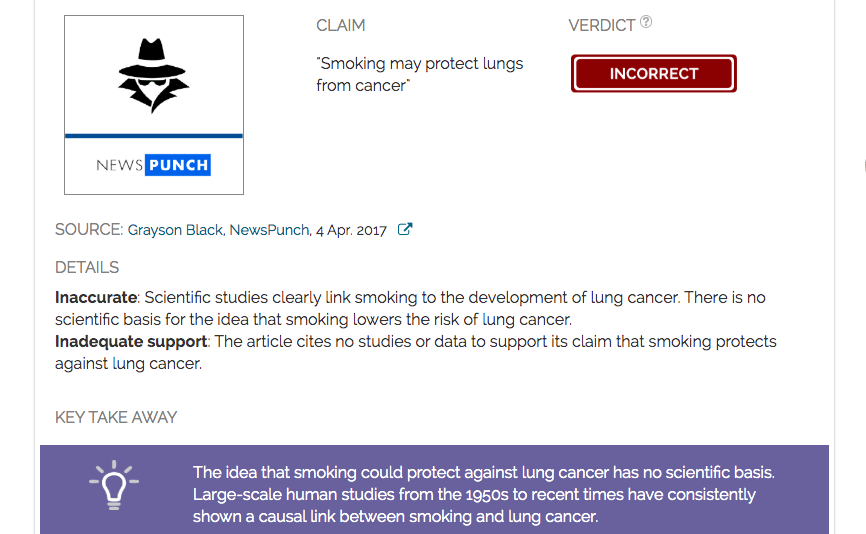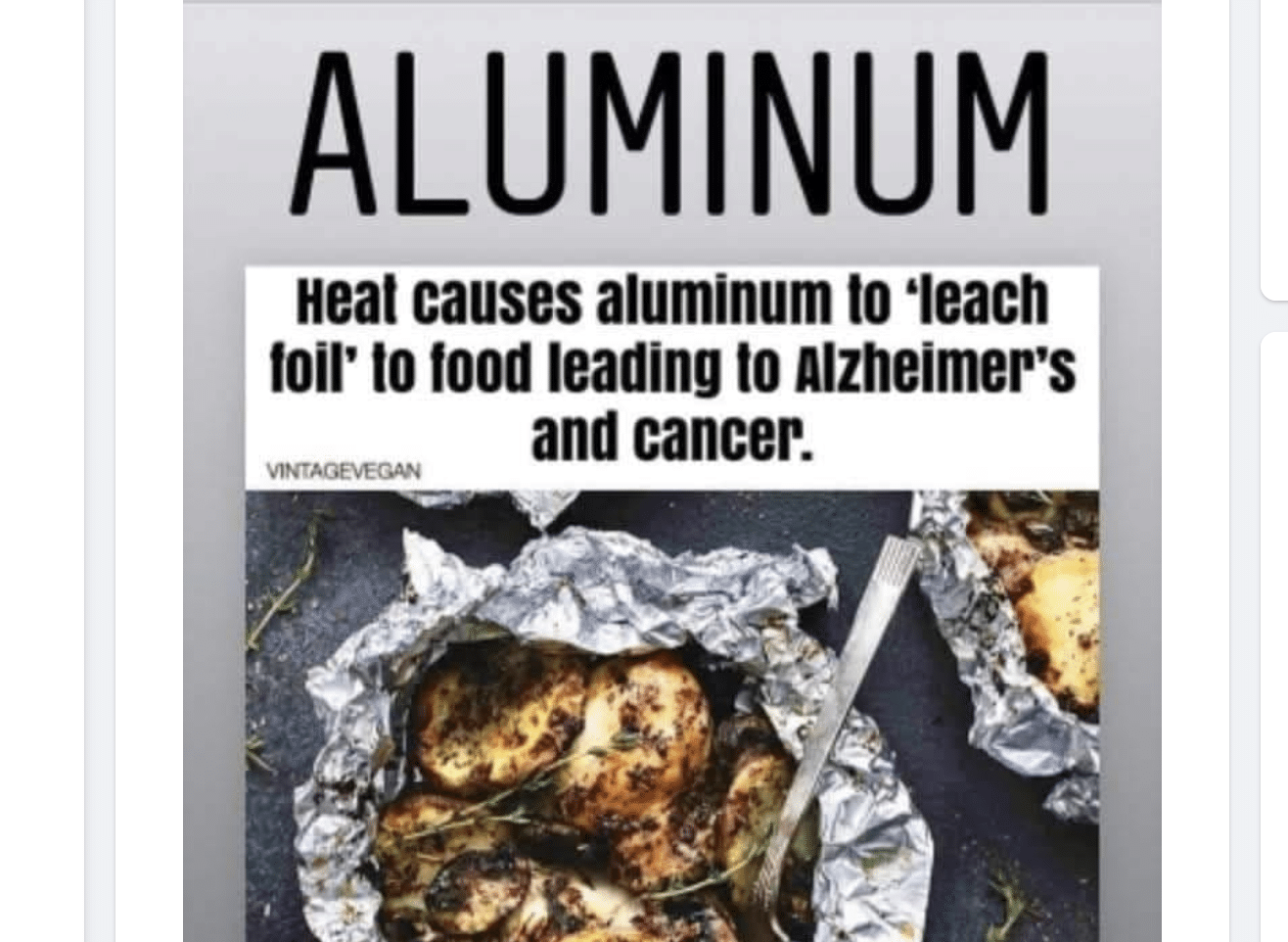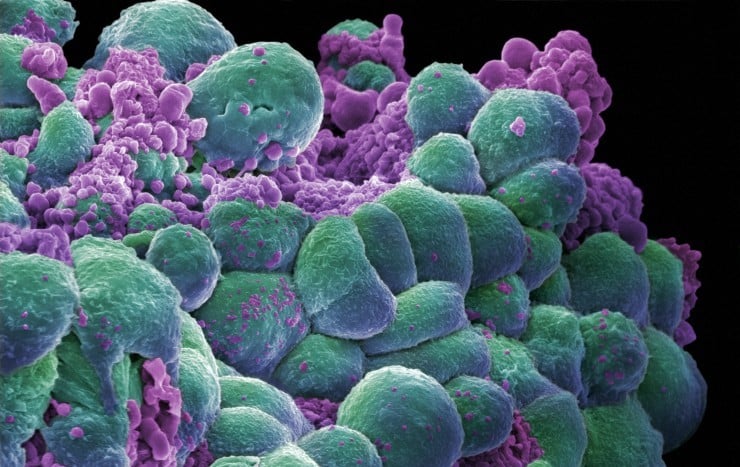- Health
Overwhelming scientific evidence shows that smoking causes lung cancer, instead of protecting against it
Key takeaway
The idea that smoking could protect against lung cancer has no scientific basis. Large-scale human studies from the 1950s to recent times have consistently shown a causal link between smoking and lung cancer.
Reviewed content

Verdict:
Claim:
Smoking may protect lungs from cancer
Verdict detail
Inaccurate: Scientific studies clearly link smoking to the development of lung cancer. There is no scientific basis for the idea that smoking lowers the risk of lung cancer.
Inadequate support: The article cites no studies or data to support its claim that smoking protects against lung cancer.
Full Claim
Smoking may protect lungs from cancer
Review
The article containing this claim, published in April 2017, does not cite any data or supporting studies.
In fact, an overwhelming volume of scientific evidence points to the opposite conclusion. Mounting concern about the rise in lung cancer rates during the 1950s led scientists to investigate a possible relationship between smoking and lung cancer. To do this, scientists evaluated death rates and causes of death among groups of smokers and non-smokers over a long period of time, in so-called prospective cohort studies.
The claim by NewsPunch that the scientific evidence for the smoking-lung cancer relationship is limited to animal studies is false. The first prospective cohort studies began as early as the 1950s. One by Hammond and Horn assessed more than 180,000 men in the United States and followed participants for more than three years[1]. This work was continued by the Cancer Prevention Studies (CPS), which followed more than a million men and women in the U.S. Another hallmark study by Doll and Hill included more than 40,000 men and women in the United Kingdom and followed the participants for 50 years[2,3].
All these studies found that the death rate among regular smokers during the period of observation was much higher than among people who never smoked, and that the death rate from lung cancer increased as the number of cigarettes smoked increased.
A 2009 review published in the International Journal of Epidemiology, which evaluated more recent evidence, supported these findings[4]. It stated that:
“The consistency of all the epidemiologic and experimental evidence […] supports the conclusion of a causal relationship with cigarette smoking.”
A study examining the frequency of different types of cancer in the United Kingdom reported that “tobacco smoking contributed by far the largest proportion of attributable cancer cases, accounting for 15.1% of all cases in the U.K. in 2015.” Of all cancer cases attributed to tobacco smoking, more than 70% were lung cancer[5].
The International Agency for Research on Cancer, which is part of the World Health Organization, recognizes “tobacco smoking” as carcinogenic, meaning that there is sufficient scientific evidence that it can cause cancer in both humans and animals.
The NewsPunch article also claims that smokers’ lungs and non-smokers’ lungs are similarly pink in colour, suggesting that smoking does not harm the lungs and that prevalent images of blackened lungs have been falsely attributed to smoking. This claim was addressed in an earlier review by Health Feedback, which explained that although not all smokers develop the same degree of lung pathology, this does not undermine the strong evidence that smoking is linked to lung diseases such as cancer and chronic obstructive pulmonary diseases (COPD). Statistics from the U.S. Centers for Disease Control and Prevention show that smoking causes about 90% of all lung cancer deaths and about 80% of all deaths from COPD.
Overall, the article’s assertions that “smoking may protect from lung cancer” and that “real figures nowadays are showing far more non-smokers dying from lung cancer than smokers” are not supported by scientific studies or data.
After this evaluation was published, NewsPunch retracted its article, stating that:
“An earlier version of this article incorrectly claimed that smoking might help protect lungs from cancer. There is no scientific study to back up these claims and we have therefore decided to retract the original story.” (link to archived version of the retraction notice).
REFERENCES
- 1 – Hammond and Horn. (1958) Smoking and death rates: report on forty-four months of follow-up of 187,783 men. 2. Death rates by cause. Journal of the American Medical Association.
- 2 – Doll and Hill. (1956) Lung cancer and other causes of death in relation to smoking; a second report on the mortality of British doctors. British Medical Journal.
- 3 – Doll et al. (2004) Mortality in relation to smoking: 50 years’ observations on male British doctors. British Medical Journal.
- 4 – Cornfield et al. (2009) Smoking and lung cancer: recent evidence and a discussion of some questions. International Journal of Epidemiology.
- 5 – Brown et al. (2018) The fraction of cancer attributable to modifiable risk factors in England, Wales, Scotland, Northern Ireland, and the United Kingdom in 2015. British Journal of Cancer.



